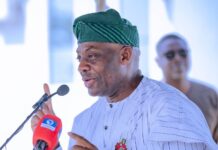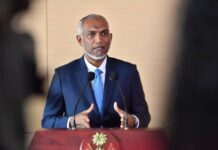Sonala Olumhense
I provide the following draft of an “Asset Declaration (Public Access) Bill, 2025,” in italics, as a public service to the National Assembly (NASS).
A bill
For an Act to prescribe the terms and conditions under which the declarations of assets and liabilities of public officers may be inspected by citizens of Nigeria, in accordance with Paragraph 3(c) of Part I of the Fifth Schedule to the Constitution of the Federal Republic of Nigeria 1999 (as amended); and for related matters.
- Short title and commencement
This Act may be cited as the Asset Declaration (Public Access) Act, 2025, and shall come into force on the date of assent by the President.
- Objectives
The objectives of this Act are to:
(a) operationalise the constitutional provision granting citizens the right to inspect declarations of assets and liabilities of public officers;
(b) promote transparency, accountability, and public confidence in governance; and
(c) deter false, fraudulent, or anticipatory declarations through effective sanctions.
- Right of access
(1) Any citizen of Nigeria shall have the right, subject to this Act, to inspect the asset declarations of public officers submitted to the Code of Conduct Bureau.
(2) Access under this Act shall not extend to information considered strictly private or sensitive as defined in Section 6 of this Act.
- Application procedure
(1) A citizen seeking access shall submit a written application to the Code of Conduct Bureau (“the Bureau”).
(2) The Bureau shall process such application within fourteen (14) working days.
(3) Inspection may be granted physically or by certified digital copy.
- Administrative fees
(1) The Bureau may charge reasonable administrative fees for processing and reproducing asset declarations.
(2) Fees shall not exceed the actual cost of reproduction or provision of access.
- Protection of personal privacy
(1) The Bureau shall redact from any declaration before release:
– Residential addresses;
– Bank account numbers;
– Identity or tax identification details;
– Names and details of dependent children under 18 years.
(2) Only the details of assets, properties, liabilities, and sources of income shall be disclosed.
- Grounds for refusal
Access may be refused if—
(a) the application is frivolous, vexatious, or made in bad faith; or
(b) disclosure would endanger national security or the safety of the officer or their family, provided that the Bureau must issue written reasons for refusal.
- Appeals
(1) Any person denied access may appeal to the Federal High Court within 30 days of the decision.
(2) The Court shall determine such appeal within 60 days.
- Offences and Penalties
(1) Failure or false declaration:
Any public officer who—
(a) fails to declare their assets and liabilities as required under the Constitution; or
(b) makes any false, incomplete, or misleading declaration,
commits an offence and shall—
– forfeit his or her position, whether elective or appointive, with immediate effect;
– be disqualified from holding any public office for ten (10) years; and
– forfeit to the Government of the Federation fifty per cent (50%) of all assets listed in the declaration.
(2) Obstruction by bureau officers:
Any officer of the Bureau who willfully obstructs or frustrates access to declarations contrary to this Act commits an offence and is liable on conviction to a fine of not less than ₦1,000,000 or imprisonment for a term not less than two years, or both.
(3) Misuse of information:
Any person who misuses or falsifies information obtained under this Act for fraudulent or criminal purposes shall be guilty of an offence and liable on conviction to imprisonment for a term not exceeding five years.
- Anticipatory declaration
(1) Any public officer who includes in their declaration—
(a) property, funds, or assets not yet legally acquired; or
(b) any asset reasonably believed to represent anticipated theft, misappropriation, or abuse of office, commits the offence of Anticipatory Declaration.
(2) A person found guilty of Anticipatory Declaration shall—
– automatically forfeit their office (whether elective or appointive);
– forfeit to the Government all undeclared or anticipatory assets in full;
– be permanently barred from holding any public office in Nigeria; and
– be liable on conviction to imprisonment for a term not less than ten (10) years without option of fine.
(3) Where an Anticipatory Declaration is found to have facilitated corrupt enrichment or abuse of office, all related proceeds and interests shall be deemed property of the State ab initio.
- Regulations
The Bureau may, with the approval of the National Assembly, make regulations for effective implementation, including procedures for verification, digital publication, and public inspection.
- Citation
This Act may be cited as the Asset Declaration (Public Access) Act, 2025 (as amended).
My objective: to prod NASS to overcome a critical legislative hole that has existed for 25 years, the declaration of assets provided for in Paragraph 3(c) of Part I of the Fifth Schedule of the Constitution.
Last week, to mark his first year in office, the chairman, Code of Conduct Bureau, Abdullahi Bello, announced that it had investigated over 500 asset declaration forms.
The CCB is constitutionally empowered to receive, examine, and retain custody of these documents in the form of “a written declaration of all properties, assets, and liabilities of the officeholder, including those of their unmarried children under 18 years.”
Mr Bello’s efforts suggest that the CCB has not always investigated the declarations submitted to it.
So, what next?
My answer: The CCB is, at best, squandering its resources, and at worst, perpetuating its role in the “let’s pretend” game played by Nigeria’s so-called “anti-corruption” bodies.
Think about it: what has the CCB actually done since the 1999 Constitution (as amended) gave life to it?
The Constitution labours hard to outline the task and those to whom it applies across the three arms of government. In addition to filing their declaration with the CCB before assuming office, each relevant official is required to file another declaration at the end of every four years and at the conclusion of their term in office.
In other words, for 26 years, no fewer than 20,000 men and women have technically filed, or owed, close to 100,000 declarations to the CCB. But no citizen has set his eyes on any of them.
This is because the National Assembly has blackmailed and betrayed Nigerians into silence by failing to establish the access rules demanded by Paragraph 3(c) of Part I of the Fifth Schedule.
This makes the CCB a farce, and it is deliberate. Corruption and impunity begin with concealment. When declarations are hidden, officials can lie, loot, or “anticipate” future thefts with impunity. Public confidence collapses when citizens cannot verify the integrity of their leaders. Nigeria’s global image suffers when anti-corruption pledges are not backed by law. The guilty are not afraid; they are emboldened.
This draft bill seeks to implement the Constitution directly. It responsibly balances the public’s right to know with the protection of sensitive data, establishes a clear process, and prescribes sanctions where necessary.
To sweeten the deal, I also provide an Explanatory Memorandum for the Asset Declaration Bill.
This memo, to all 469 NASS-ers, eliminates all excuses. The public, including constituents, journalists and civil society, should engage them everywhere to stop the institutionalised nutrition of corruption.






























































